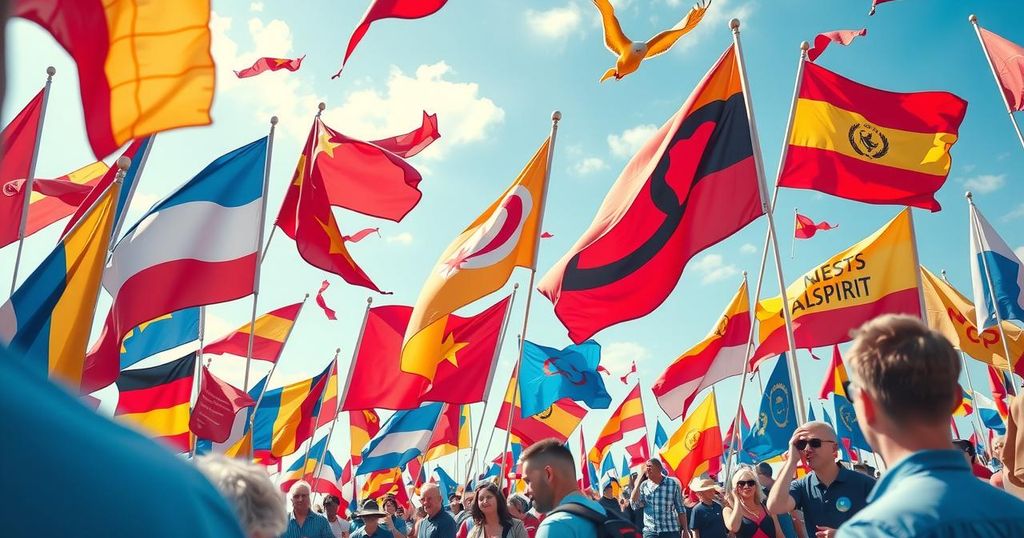Colombia’s President Calls for Special Election on Labor and Health Reforms

Colombian President Gustavo Petro has called for a special election regarding health and labor reforms, urging citizens to oppose political figures blocking these changes. He emphasizes voter empowerment and plans a plebiscite to bypass congressional gridlock. Challenges exist in mobilizing voter turnout for this election, yet it presents an opportunity to galvanize support ahead of upcoming elections.
During a recent rally in Bogotá, Colombia, President Gustavo Petro called upon his supporters to resist centrist and right-wing politicians who have hindered crucial health and labor reforms. He announced plans for a special election, or plebiscite, aimed at allowing voters to approve or reject stalled legislation, asserting the need for reform in response to the mismanagement within Congress.
Petro, who also granted a day off for national government workers to attend the rally, voiced that the public has endured too much under politicians he characterized as “monarchs and tyrants.” His administration’s goal is to empower the citizenry through direct participation in deciding on health and labor laws, which he claims are being obstructed by corporate interests.
He expressed the discrepancy in legislative support for his initiatives, as his Historical Pact coalition occupies only 20% of the Senate. There are concerns regarding the feasibility of mobilizing sufficient voters for the special election, given that approximately 13 million, or a third of registered voters, must participate to validate the results. Political analysts suggest that leveraging the special election could be a strategic move to galvanize support ahead of the congressional elections in March.
In his reform agenda, Petro aims to overhaul the health system by replacing insurance companies with a governmental agency for social security payments. Past attempts at proposing reforms have met rejection, largely due to fears that they might empower bureaucrats excessively and challenge the government’s capacity to manage the health system effectively. Additionally, his labor reforms entail enhancing pay for nighttime workers and imposing stricter regulations on the hiring of short-term contracts, although critics contend this may escalate unemployment rates.
With over 55% of Colombians engaged in informal employment, there is skepticism regarding Petro’s capability to incentivize these workers through proposed legislation.
In conclusion, President Gustavo Petro’s advocacy for a special election reflects his commitment to pushing for critical labor and health reforms in Colombia. Despite the challenges in mobilizing voter turnout and the resistance from certain political figures, Petro remains focused on empowering citizens to influence legislative outcomes directly. The potential impact of these reforms, alongside the upcoming congressional elections, could shape the future of governance in Colombia.
Original Source: www.mymotherlode.com







